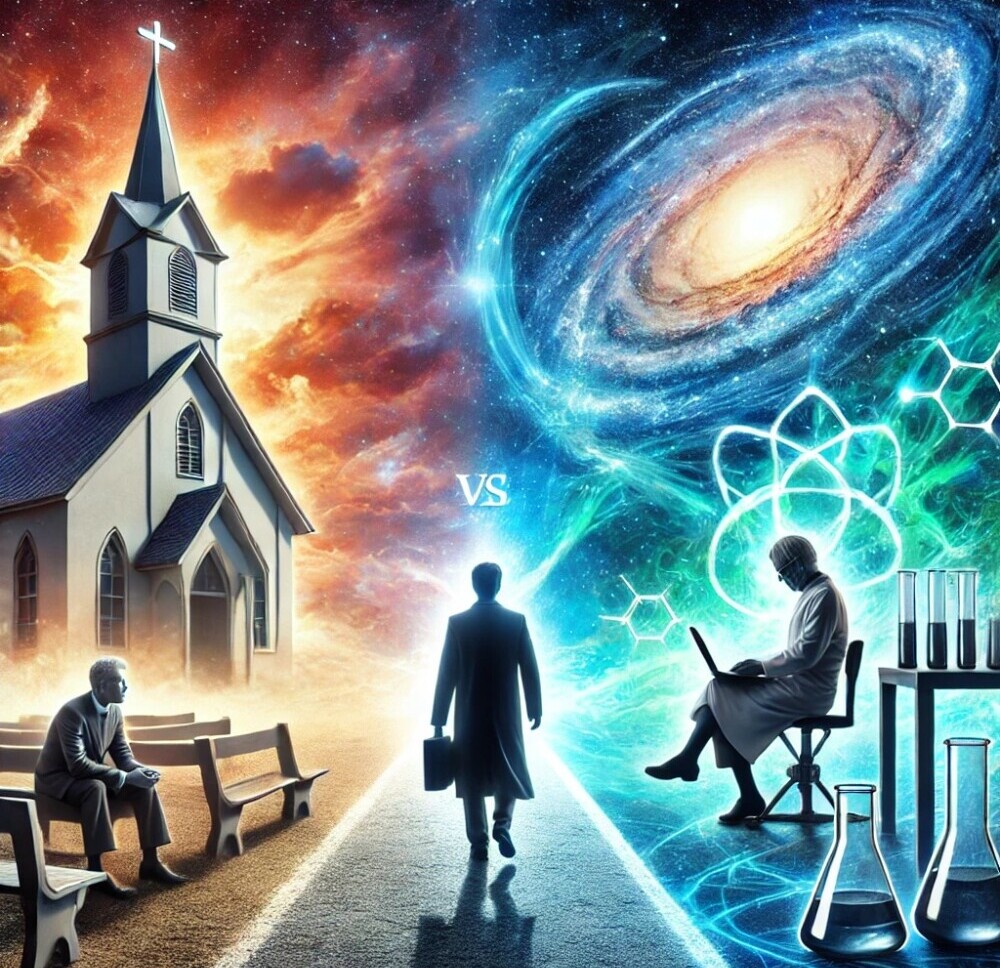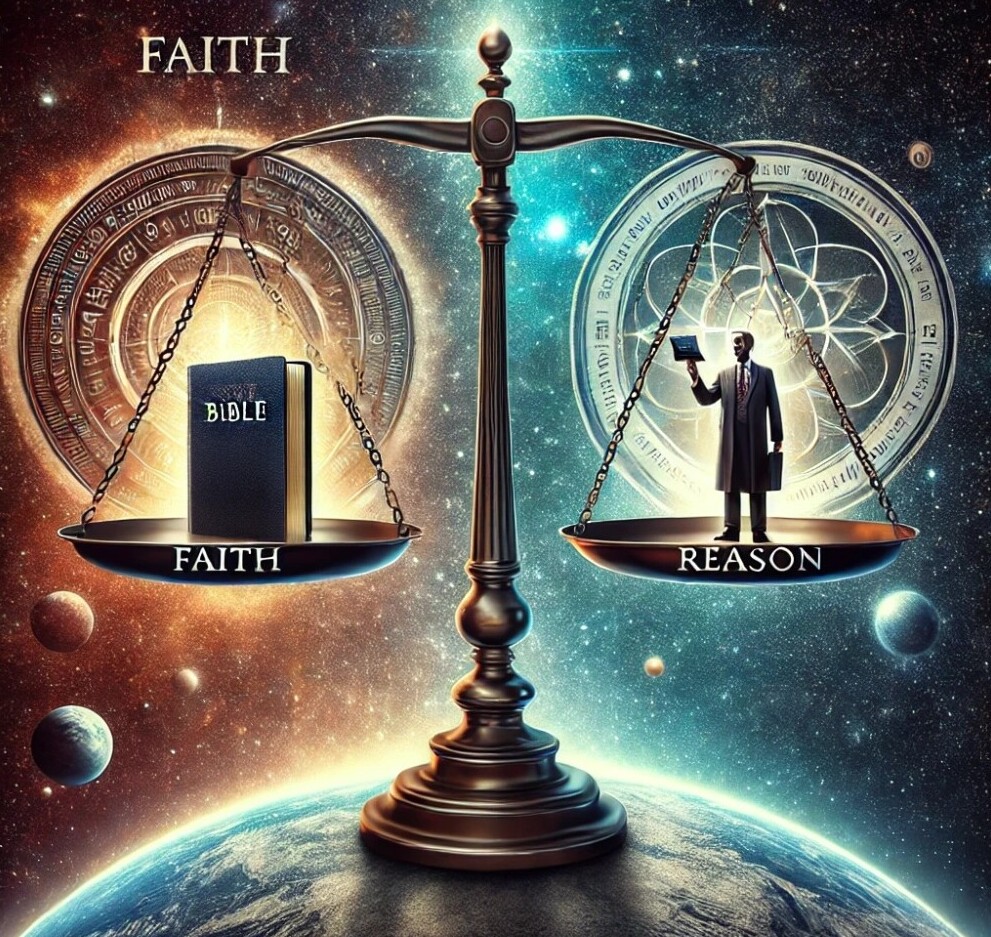
Introduction: The Debate Over God’s Existence
Discussions about God’s existence often bring passionate arguments from both believers and atheists. Recently, on my Facebook page, Reasoned Faith Blog, I engaged in several conversations with atheists who challenged the need for God, dismissed religious belief as superstition, and insisted that no compelling evidence for God exists.
This article will address some of the most common objections and misconceptions, including:
- The claim that religion has been used to justify evil (e.g., slavery).
- The problem of evil and whether God’s existence is compatible with suffering.
- The challenge to prove God’s existence without circular reasoning.
- Whether faith and science are at odds.
- The accusation that religious belief is merely indoctrination.
Let’s dive into these issues with reason and clarity.

1. Has Religion Been Used to Justify Evil?
The Case of Frederick Douglass and Captain Auld
One comment referenced Frederick Douglass’ observation that his former slave master, Captain Auld, became crueler after his conversion to Methodism. The implication? Religion is not a force for good, but a justification for oppression.
But does this prove that Christianity itself is evil? No. Just as people misuse laws for selfish gain, people have misused Christianity to justify wrongdoing.
Christianity Opposed Slavery, Not Supported It
The historical reality is that Christian abolitionists—such as William Wilberforce, the Quakers, and countless Catholic and Protestant leaders—were at the forefront of the fight against slavery. The teachings of Christ, who commanded love, mercy, and justice, directly oppose slavery.
A person’s misuse of faith does not invalidate the truth of the faith itself. Otherwise, we would reject science, medicine, and law simply because they have been used for evil.

2. The Problem of Evil: Why Does an All-Good God Allow Suffering?
One common objection: “So, the free will and evilness of slave masters matter more to your all-powerful, omniscient, omnipotent, omnipresent, and omnibenevolent God than the suffering of millions?”
This question highlights a real struggle: if God exists, why does He allow evil? But let’s unpack this logically.
Free Will and Moral Responsibility
Christianity teaches that God created humans with free will, meaning we can choose good or evil. The alternative—a world without free will—would mean a world where no one could truly love, create, or make moral choices.
God’s omnipotence does not mean He should override human choices. If He did, He would make us robots, not moral beings. Slavery, like other moral evils, is a result of human choices, not divine endorsement.
Would We Know Evil Without Good?
Without an objective moral standard, we would have no basis to call slavery wrong in the first place. If atheism were true, morality would be subjective, and concepts like human rights would be mere social constructs. The very outrage against injustice assumes an objective moral law—which, logically, points to a Moral Lawgiver.

3. The Burden of Proof: Do We Have to Prove God Exists?
Atheists often say, “You have to prove God exists, but I don’t have to prove anything.” But is that fair?
Atheism is Not a Neutral Position
To say “God does not exist” is a claim just like saying “God does exist.” Both require justification. Simply saying, “I don’t know,” is honest—but saying, “Therefore, God doesn’t exist,” is an assertion that requires evidence.
Evidence for God’s Existence
Several philosophical and scientific arguments point to God’s existence, including:
- The Cosmological Argument: Everything that begins to exist has a cause. The universe began to exist. Therefore, the universe has a cause—God.
- The Fine-Tuning Argument: The universe is precisely tuned for life. This suggests intentional design, not random chance.
- The Moral Argument: Objective moral values exist. Atheism cannot account for this, but God can.
No, these arguments don’t “force” belief, but they make atheism a less reasonable conclusion.

4. Is Science the Enemy of Faith?
Many claim, “Science has continually dethroned religion. Not once has religion dethroned science!” But this is historically false.
Christianity and the Birth of Modern Science
Many of the greatest scientists—Galileo, Newton, Kepler, Pasteur—were Christians. Science does not disprove God; rather, it assumes order, laws, and rationality—all things that make sense in a theistic worldview.
Can Science Explain Everything?
Science can explain how things work, but not why they exist in the first place. The laws of physics describe reality, but they don’t explain why there is something rather than nothing.
If the universe had a beginning, then something must have caused it. If morality is real, where does it come from? These are philosophical and theological questions that science alone cannot answer.
5. Is Religion Just Indoctrination?
Some argue, “Babies are born atheists. Religion is forced upon them.” But is that true?
Every Worldview is Taught
Atheism, just like religion, is a belief system. Raising a child to believe in God is no more “indoctrination” than raising a child to believe in democracy, equality, or scientific materialism.
Moral Teaching vs. Indoctrination
Teaching children morality is not indoctrination—it’s forming a framework for life. Even atheist parents teach moral values, beliefs, and assumptions about the world.
Rather than being blind faith, Christianity encourages questioning, seeking, and reasoning—something the greatest Christian minds (Aquinas, Augustine, C.S. Lewis) have done for centuries.

Conclusion: Does God Exist? A Final Thought
Atheists claim that religion is superstition, science has displaced God, and morality doesn’t require a deity. Yet, upon closer examination:
- The abuse of religion doesn’t disprove its truth.
- The existence of evil does not negate God but confirms the need for objective morality.
- Atheism is not a default position but a claim that requires evidence.
- Science and faith aren’t rivals—they’re partners in the search for truth, each answering different but important questions.
- Raising children with religious values is not coercion any more than raising them with secular values.
Ultimately, belief in God is not a blind leap—it is a reasoned conclusion based on philosophy, history, science, and personal experience. The question is: are you willing to consider the evidence?

This was a thoughtful and well-reasoned post. The existence of God is one of the most debated topics out there, and I appreciate how you addressed some of the most common objections in a calm and logical manner. It’s refreshing to see a respectful dialogue that engages with skepticism while also offering philosophical and moral arguments. Whether someone agrees or not, discussions like these are important for encouraging deeper thinking and self-reflection. Personally, I find it fascinating how both sides can present compelling viewpoints, and reading pieces like this helps me better understand the broader conversation. Great job sparking meaningful discussion!
Thank you—I really appreciate that! It means a lot that you found the tone respectful and the points thought-provoking. I agree, these kinds of conversations are so valuable, especially when they push us to think more deeply about what we believe and why. Thanks for being part of the dialogue!
Thoughtful! Exceptional! Very good post. In my street ministry, I have encountered many who think that their suffering is due to God not caring. What they don’t admit is their own complicity in the situation. This article lays out several good points concerning the argument of God’s existence. Your point of ‘raising kids with moral standards’ vs ‘letting kids determine their own moral and spiritual existence.’ Is spot on the mark.
Appreciate that—you’re right, it’s heartbreaking how many people think God’s silence means He doesn’t care, when often it’s our own choices (or the world’s brokenness) that bring the pain. And when we push God out, we can’t blame Him for the fallout. That parenting example just seemed to hit home—loving parents don’t let their kids do whatever they want, so why would we expect God to? Glad the post resonated with your experience in ministry. Keep planting those seeds out there.